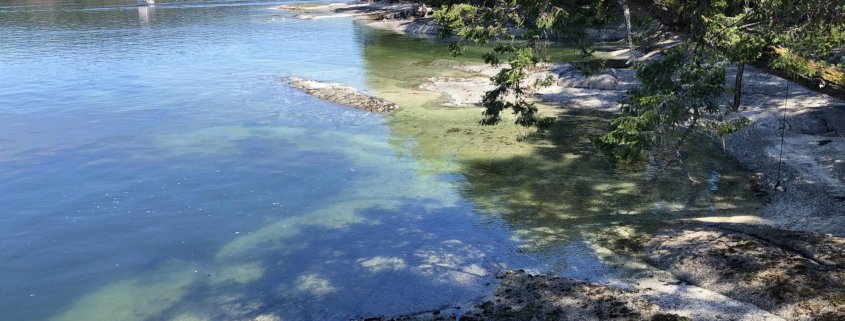
Canopy-forming kelp forests are globally recognized as one of the most structurally complex foundational ecosystems, playing an important role in maintaining marine food webs, buffering shorelines against erosion and contributing to carbon and nitrogen cycling. In coastal British Columbia, kelp forests have cultural relevance as historical navigation routes and as habitats for important food sources, particularly for coastal First Nations.
These important ecosystems are also used by salmon at multiple stages in their lives as both habitat and foraging grounds. Kelp forests are of great interest to many local marine scientists at present because they have been observed to be rapidly declining – they have already lost about 80% of historic local populations in many places on the west coast of North America.
Today, the cumulative effects of a warming climate, coastal development and sedimentation threaten kelp, which are recognized as ecologically significant species of priority in Canada. Loss of this critical habitat will greatly impact commercially valuable marine fisheries and at-risk or endangered species, resulting in large-scale ecological shifts and the loss of a way of life for many coastal communities.
We have supported research into how kelp will be affected by climate change and strategies to help it become more resilient.



